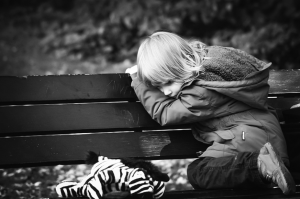By Cecilia Bianco, September 03 2014
 A recent study conducted by Florida’s Office of Juvenile Justice and Delinquency Prevention and the University of Florida revealed that juvenile offenders in Florida have significantly higher rates of adverse childhood experiences (ACEs) than the population as a whole.
A recent study conducted by Florida’s Office of Juvenile Justice and Delinquency Prevention and the University of Florida revealed that juvenile offenders in Florida have significantly higher rates of adverse childhood experiences (ACEs) than the population as a whole.
This conclusion from the study—The Prevalence of Adverse Childhood Experiences (ACE) in the Lives of Juvenile Offenders—is compared to the previous study by the CDC, which discovered a link between childhood adversity and the adult onset of chronic disease, mental illness, violence and becoming a victim of violence.
The 10 adverse childhood experiences measured in the Florida research and the CDC’s ACE Study were the same:
- Emotional, physical, and sexual abuse
- Emotional and physical neglect
- Witnessing a mother being abused
- Household substance abuse
- Household mental illness
- Losing a parent to separation or divorce
- Having an incarcerated household member
Half of the Florida juveniles reported four or more ACEs, compared with 13 percent of those in the CDC’s ACE Study. Young people with four ACEs are twice as likely to be smokers, 12 times more likely to attempt suicide, seven times more likely to be alcoholic, and 10 times more likely to inject street drugs.
The Department of Juvenile Justice incorporates trauma-informed practices into many of its programs due to the higher rates of certain individual types of trauma among juvenile justice-involved youth.
This study provides further evidence to support these practices that create safe environments for young people to avoid re-traumatizing them and to facilitate participation of trauma survivors in the planning of services and programs. Released in the Spring 2014 issue of the Journal of Juvenile Justice, the Florida study has sparked the interest of state government, and academic and child advocacy communities.
Dr. Nancy Hardt, a co-author of the study and professor in pathology and obstetrics-gynecology at the University of Florida College of Medicine, says juvenile justice and law enforcement authorities have been “reaching out in their communities to other services providers, to create this notion of a trauma-informed community…The community understands that when children exhibit asocial behaviors, it’s better to address the root causes than treat them like little criminals.”
“It’s time for justice, law enforcement, health and schools to all get together on behalf of these children who are experiencing ACEs,” she says.
Information courtesy of Ed Finkel on AcesTooHigh.com
Image from Creative Commons User U.S. Fotografie
Topics: Juvenile Justice Reform
Updated: February 08 2018
